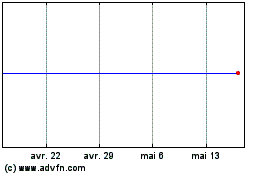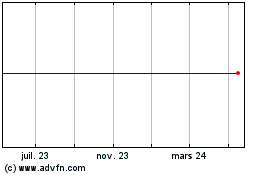Residents of several coastal towns in Ecuador scrambled to free
survivors trapped in the rubble of collapsed buildings after the
country's strongest earthquake in decades killed hundreds and
destroyed homes, bridges and roads.
At least 246 people died in the magnitude-7.8 quake, the
strongest in Ecuador since 1979. An additional 2,527 people were
injured, officials said.
The quake hit at about 7 p.m. local time on Saturday. Television
images showed residents in the hardest-hit areas sifting through
rubble trying to rescue trapped family members.
The situation was particularly "grave" in the coastal towns of
Portoviejo and Pedernales, a popular tourist spot, President Rafael
Correa said. "The entire country has been mobilized," he said
Sunday on his Twitter account.
The number of fatalities was expected to increase, said Diego
Castellanos, a spokesman for the Red Cross in Ecuador. In
Pedernales, which has about 50,000 residents, about 80% of homes
were destroyed or in bad condition. He said that 40% of the larger
buildings collapsed.
"I don't want to think that there are going to be thousands [of
deaths], but we believe that it is going to increase basically
because they haven't been able to get into the collapsed buildings
yet," he said.
The earthquake rattled the country late Saturday, raising
initial concerns about a tsunami in Ecuador and neighboring Peru.
The U.S. Geological Survey said that the quake's epicenter was
about 17 miles southeast of Muisne, a coastal city located in
northwestern Ecuador.
The quake was felt as far away as the capital Quito, located in
the Andes about 106 miles east of the epicenter.
Elena Seiffert, an American who has lived in Ecuador for the
past two months, was in her 11th floor apartment in Quito when the
quake struck. "The building was swaying back and forth for what
felt like a really long time," she said. "Things were falling down,
including paint chips and small pieces of the ceiling which made it
feel like the building could fall."
In Guayaquil, Ecuador's largest city and home to its biggest
port, a bridge collapsed, crushing one person, while media images
showed the roof of a shopping mall had fallen in. Guayaquil
resident Yadira Yagual said the lights went out at the mall while
she was working. "It was horrible at my work," she was quoted
saying by newspaper El Universo.
Jennifer Zambrano, a receptionist at a hotel in Guayaquil, said
malls and other shops were closed on Sunday. Sshe was in her home
cooking when the quake hit, forcing her and a cousin to
evacuate.
"My cousin was in shock, she didn't move, didn't do anything, so
I pulled her and we went to a soccer field that is near my house
that is far from cables," she said.
After the quake, many residents slept outside because of concern
their homes were unsafe as aftershocks continued through the night.
The country's Geophysical Institute said it reported 154
aftershocks by early Sunday.
"It isn't just a building that collapsed, but an entire city
collapsed," Gabriel Alcivar, the mayor of Pedernales, told the
Teleamazonas television station late Saturday. He said that much of
the town was flattened and people were trapped under the
rubble.
"We are witnessing an enormous catastrophe," Mr. Alcivar added.
"People are trapped...and we can't do anything."
Vice President Jorge Glas said the government declared a state
of emergency and put the country's health system on maximum alert.
Mr. Glas, who traveled to some of the hardest-hit areas early
Sunday, said that 10,000 soldiers and 3,500 police were deployed to
the most affected zones to maintain public order and assist in the
rescue. He said at a news conference early Sunday that officials
were able to reinstall electricity in some areas where the quake
caused a blackout.
The government also said that it has $300 million in emergency
funds to support its reconstruction efforts.
"No Ecuadorean is alone," Mr. Glas said Sunday. "We are a
strong, supportive nation that is unified and that will come out of
this emergency strengthened."
Latin American and European governments expressed support for
Ecuador. U.K. Prime Minister David Cameron said his government
would provide "any support it can," while Mexican President Enrique
Peñ a Nieto expressed his solidarity with the government and
residents affected by the quake. Government officials in Ecuador
said that Mexican experts were being sent to help with the
rescue.
Canadian Foreign Minister Sté phane Dion said two Canadians died
in the quake. "I extend my deepest condolences to the families,
friends and loved ones of the victims," he said in a statement.
"Canadian officials at our embassy in Quito are reaching out to
Canadian citizens in-country and providing assistance to Canadians
affected by the earthquake."
Write to Ryan Dube at ryan.dube@dowjones.com
(END) Dow Jones Newswires
April 17, 2016 20:25 ET (00:25 GMT)
Copyright (c) 2016 Dow Jones & Company, Inc.
Twitter (NYSE:TWTR)
Graphique Historique de l'Action
De Juin 2024 à Juil 2024

Twitter (NYSE:TWTR)
Graphique Historique de l'Action
De Juil 2023 à Juil 2024
